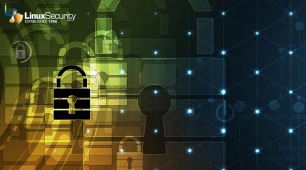
Multiple security vulnerabilities have recently been discovered in the XOrg Server prior to 21.1.11, and Xwayland display implementations prior to 23.2.4. These vulnerabilities could potentially result in heap overflows, out-of-bounds writes, and local privilege escalation, potentially enabling attackers to view additional infrastructure to attack, add or delete users, or modify permissions of files or other users.
The xorg-server v21.1.11 and xwayland v23.2.4 have been released to address these issues. It was recently discovered that the fix for these vulnerabilities was incomplete, resulting in a possible regression. Updates have now been released to fix this issue.
What Are The Implications of These Flaws? How Can I Mitigate My Risk?
 These issues are an important warning to Linux admins, infosec professionals, internet security enthusiasts, and sysadmins, urging them to take immediate action to protect their systems. The potential consequences of ignoring these vulnerabilities could be severe, ranging from unauthorized access to system compromise. The fact that some of these vulnerabilities have remained unpatched for several years raises concerns about the overall security of the X server.
These issues are an important warning to Linux admins, infosec professionals, internet security enthusiasts, and sysadmins, urging them to take immediate action to protect their systems. The potential consequences of ignoring these vulnerabilities could be severe, ranging from unauthorized access to system compromise. The fact that some of these vulnerabilities have remained unpatched for several years raises concerns about the overall security of the X server.
Switching to Wayland instead of relying on the X server may be beneficial for admins, as the X server remains unpatched against many security vulnerabilities, facilitating the need for the migration to a more secure alternative. This raises the question of whether the open-source community should shift its focus toward Wayland and encourage Linux distribution maintainers to make it the default display server.
Even if a Linux distribution already uses Wayland by default, the Xwayland implementation is likely still in use for compatibility with X11 apps. This highlights the importance of ensuring that systems are updated with the latest version and patched against these vulnerabilities. The impact of failing to do so could be significant, as any breach in the Xwayland implementation could potentially compromise the security-conscious infrastructure.
The implications of these security vulnerabilities extend beyond immediate patches. It prompts reflection on the open-source community's approach to security, raising questions about the overall effectiveness of the current security practices. How can future vulnerabilities be prevented or detected earlier? We'd like to see increased scrutiny of the codebase by the community and regular security audits to identify and patch potential vulnerabilities.
Our Final Thoughts on The Impact & Implications of These Bugs
In conclusion, these vulnerabilities are a stern reminder for Linux admins, infosec professionals, internet security enthusiasts, and sysadmins to prioritize patching the XOrg Server and Xwayland vulnerabilities. The long-term consequences of any compromises could be severe, necessitating a proactive approach to ensure system integrity. We encourage a critical examination of current security practices, potentially paving the way for a broader discussion on the future of display servers in the Linux ecosystem. Above all, security practitioners must stay informed about vulnerabilities, their impact, and effective mitigation strategies by subscribing to industry newsletters like our Linux Advisory Watch.
Stay safe out there, fellow Linux users!



















